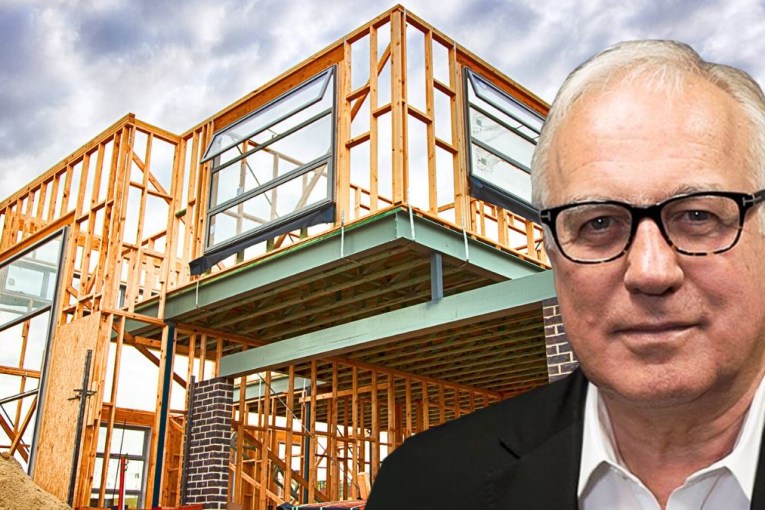The Stats Guy: Make sure to ‘die with zero’ for optimal happiness


This week, let’s challenge our view of retirement, personal finance, and life priorities. Photo: TND
This week, let’s challenge our view of retirement, personal finance, and life priorities. This column is inspired by the book Die with Zero by Bill Perkins. The book is most relevant to members of the middle and upper classes. If you are experiencing severe financial stress, the problems discussed might sound mockish though.
The basic argument is simple: To derive maximum fulfillment and happiness from our money, don’t save up all money for retirement; don’t worry about leaving a large monetary inheritance to your kids; rather, spend wealth while you are alive.
Money is just a tool to cover basic needs, experience nice things, help other people, and leave a legacy. We should therefore aim to die without too much money left in our own accounts (“die with zero”).
If we accumulate too much money that we don’t end up using in some form (this includes giving it to our kids while you are alive) before we die, we worked to create wealth without getting to enjoy the experiences that could be associated with it.
Life, live it
We worked for nothing; we didn’t utilise our limited time on earth in an ideal way. Prioritise experiences and investments that bring us joy and fulfillment in the present rather than deferring gratification too far into the future. We should front-load our big experiences.
A lot of happiness in our lives comes from reliving past experiences in our minds. You still think back on that crazy trip you did on the cheap with your high school friends, your first love, or the wonderful Christmas you had with your young kids. By creating memories early on in our lives we can maximise the “memory dividend”.
Don’t get too excited, this is not an invitation to spend recklessly. It’s an invitation to earn and spend strategically and to not fall into the trap of accumulating wealth that you don’t utilise – even accounting for generous buffers.
This is where this column suddenly turns into yet another piece on the Australian housing market. According to the logic of the book, the “bank of mum and dad” is equally great for parents and kids.
Perkins advocates strongly against the idea of accumulating as much wealth as possible with the sole goal of handing it to your kids upon your death.
Firstly, you don’t have control over your money once you die. Sure, a will can dictate who gets how much but you are cheating yourself out of the joy of helping your kids financially, you don’t see how your favourite charity uses your money to do good.
The immediate need
Secondly, your kids need your money now (if you don’t have kids and plan to donate money once you die, the same logic applies) rather than later. Kids need a leg up in the housing market when they are raising a family in their 30s rather than when they moan your loss, are aged around 60, and their kids have moved out already.
Assuming an interest rate of 5.3 per cent and a loan term of 30 years, a $400,000 mortgage will require your kids to pay a total of $800,000 to the bank. If you can afford to give your kids an early inheritance of say $100,000 they only need a $300,000 mortgage.
The total repayment would only be $600,000. You effectively gave your kids a $200,000 financial advantage by “only” giving them $100,000. That’s a very effective use of money.
Another reason to turn yourself into the bank of mum and dad is that leaving kids to manage the wealth transfer once you are gone can create conflict. Sure, your will can set guidelines, but many families have been torn apart during the inheritance process.
Take 10 reasonably valuable objects from your house: a big wooden table, a collection of tools, or maybe a piece of art. Now each of your kids must assign a dollar value to the whole pile. They will come up with different numbers.
Splitting up material inheritances can be incredibly messy, and someone is bound to feel shortchanged. I am sure you know people that stopped talking to their siblings over such disputes.
Your financial legacy should be a positive one, you will want to know that your money is helping your kids. If you mismanage the intergenerational wealth transfer, your legacy might be an eternal rift between surviving family members.
What price loneliness?
You can minimise that risk by downsizing your home and by minimising your possessions. That makes the process of dividing your inheritance easier for your kids and gives you more cash in hand to spend on experiences, to hand out to your kids while you are still alive. But is that really in your best interest, or is it just your kids that benefit?
A huge risk in old age is loneliness. This is most severe for the last surviving member of a couple. Your partner of many years just died. Obviously that not good for your mental health. You now live alone in the large family home. If your home is in a car dependent location, loneliness gets even more severe. You will receive fewer social visits, stay isolated for longer stretches of time, and your mental health slowly deteriorates.
From a mental health perspective, downsizing should occur while both partners are in reasonably good health – say your mid-70s. Move closer to your grandkids; stay in the area but limit yourself to a generously sized apartment; move to a retirement living facility to establish a new social network. Have the social component front of mind when preparing for your last decade+. Avoiding the loneliness trap is incredibly beneficial for your mental and physical health and it allows you to free up wealth to spend as you like.
If your family can afford to act as the bank of mum and dad, it should. On an individual level the bank of mum and dad helps the kids (faster and cheaper homeownership) and the parents (get to witness how their wealth helps their kids and grandkids). It’s a win-win. What a great thing!
On a societal level, the bank of mum and dad can’t be viewed as favourably though. Imagine two young families that have identical levels of income and education, but one family has access to the bank of mum and dad while the other hasn’t. The family who does it by themselves, or inherits money once their parents die, has huge advantages on the pressurised housing market and can build up more wealth throughout their careers. This means the same game repeats itself when their kids want to buy a home.
Society isn’t rewarding effort (in form of income) nearly as much as it rewards luck (wealth of parents). Taxing wealth rather than income or consumption could soften this imbalance. I like to read policy suggestions of people in their 30s and 40s as they are just about to enter positions of real influence and therefore provide a preview of what type of polices might come our way soon. Taxing wealth (land tax rather than stamp duty), death tax (inheritances get taxed more heavily), and a softening of income taxes seem to be the rough direction that future policy will be moving towards.
Demographer Simon Kuestenmacher is a co-founder of The Demographics Group. His columns, media commentary and public speaking focus on current socio-demographic trends and how these impact Australia. His latest book aims to awaken the love of maps and data in young readers. Follow Simon on X (Twitter), Facebook, LinkedIn for daily data insights in short format.








